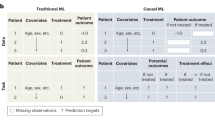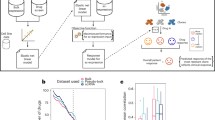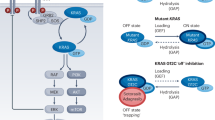Abstract
Health systems and the clinical research landscape evolve continuously owing to increased risk aversion, scrutiny by funding bodies, and costs of clinical trials. In this context, however, current drug development procedures are far from optimal, as exemplified by the late-stage failure of several drugs. The identification of new drugs urgently requires approaches based on a solid understanding of cancer biology, and that will support the design of robust confirmatory trials. The complexity and the costs of drug development are now beyond the knowledge and operational capacity of single organisations, therefore, a drastic deviation from the traditional path of drug discovery and new forms of multidisciplinary partnerships are needed to succeed in this sector. The European Organisation for Research and Treatment of Cancer (EORTC) proposes the use of collaborative molecular screening platforms (CMSPs) as a new approach to tackle this issue. These CMSPs have the advantage of optimizing the expertise of several partners and combining efforts alongside with cost-sharing models for efficient patient selection. This article describes some of the challenges to advancing drug development and improving medical treatments and how these hurdles can be overcome.
This is a preview of subscription content, access via your institution
Access options
Subscribe to this journal
Receive 12 print issues and online access
$209.00 per year
only $17.42 per issue
Buy this article
- Purchase on Springer Link
- Instant access to full article PDF
Prices may be subject to local taxes which are calculated during checkout


Similar content being viewed by others
References
Wehling, M. Drug development in the light of translational science: shine or shade? Drug Discov. Today 16, 1076–1083 (2011).
Morgan, B. et al. Dynamic contrast-enhanced magnetic resonance imaging as a biomarker for the pharmacological response of PTK787/ZK 222584, an inhibitor of the vascular endothelial growth factor receptor tyrosine kinases, in patients with advanced colorectal cancer and liver metastases: results from two phase I studies. J. Clin. Oncol. 21, 3955–3964 (2003).
Mross, K. et al. Phase I clinical and pharmacokinetic study of PTK/ZK, a multiple VEGF receptor inhibitor, in patients with liver metastases from solid tumours. Eur. J. Cancer 41, 1291–1299 (2005).
Van Cutsem, E. et al. Randomized, placebo-controlled, phase III study of oxaliplatin, fluorouracil, and leucovorin with or without PTK787/ZK 222584 in patients with previously treated metastatic colorectal adenocarcinoma. J. Clin. Oncol. 29, 2004–2010 (2011).
Hecht, J. R. et al. Randomized, placebo-controlled, phase III study of first-line oxaliplatin-based chemotherapy plus PTK787/ZK 222584, an oral vascular endothelial growth factor receptor inhibitor, in patients with metastatic colorectal adenocarcinoma. J. Clin. Oncol. 29, 1997–2003 (2011).
Fukuoka, M. et al. Multi-institutional randomized phase II trial of gefitinib for previously treated patients with advanced non-small-cell lung cancer (the IDEAL 1 trial). J. Clin. Oncol. 21, 2237–2246 (2003).
Thatcher, N. et al. Gefitinib plus best supportive care in previously treated patients with refractory advanced non-small-cell lung cancer: results from a randomised, placebo-controlled, multicentre study (Iressa Survival Evaluation in Lung Cancer). Lancet 366, 1527–1537 (2005).
Kim, E. S. et al. Gefitinib versus docetaxel in previously treated non-small-cell lung cancer (INTEREST): a randomised phase III trial. Lancet 372, 1809–1818 (2008).
Mok, T. S. et al. Gefitinib or carboplatin-paclitaxel in pulmonary adenocarcinoma. N. Engl. J. Med. 361, 947–957 (2009).
Van, C. E. et al. Phase III trial of gemcitabine plus tipifarnib compared with gemcitabine plus placebo in advanced pancreatic cancer. J. Clin. Oncol. 22, 1430–1438 (2004).
Mcdonald, J. S. et al. A phase II study of farnesyl transferase inhibitor R115777 in pancreatic cancer: a Southwest Oncology Group (SWOG 9924) study. Invest. New Drugs 23, 485–487 (2005).
Bergh, J. et al. First-line treatment of advanced breast cancer with sunitinib in combination with docetaxel versus docetaxel alone: results of a prospective, randomized phase III study. J. Clin. Oncol. 30, 921–929 (2012).
Crown, J. P. et al. Phase III trial of sunitinib in combination with capecitabine versus capecitabine monotherapy for the treatment of patients with pretreated metastatic breast cancer. J. Clin. Oncol. 31, 2870–2878 (2013).
Burock, S., Meunier, F. & Lacombe, D. How can innovative forms of clinical research contribute to deliver affordable cancer care in an evolving health care environment? Eur. J. Cancer 49, 2777–2783 (2013).
PWC. From vision to decision [online], (2012).
Lacombe, D., Burock, S. & Meunier, F. Academia-industry partnerships: are we ready for new models of partnership?: the point of view of the EORTC, an academic clinical cancer research organization. Eur. J. Cancer 49, 1–7 (2013).
Khanna, I. Drug discovery in pharmaceutical industry: productivity challenges and trends. Drug Discov. Today 17, 1088–1102 (2012).
US Department of Health and Human Services, Food and Drug Administration. Guidance for Industry Enrichment strategies for Clinical Trials to Support Approval of Human Drugs and Biological Products [online], (2013).
US Department of Health and Human Services, Food and Drug Administration. Clinical Pharmacogenomics: Premarketing Evaluation in Early Phase Clinical Studies [online], (2013).
European Medicines Agency. Reflection paper on pharmacogenomics in oncology [online], (2008).
European Medicines Agency. Reflection paper on methodological issues with pharmacogenomic biomarkers in relation to clinical development and patient selection [online], (2011).
European Medicines Agency. Reflection paper on co-development of pharmacogenomic biomarkers and assays in the context of drug development (draft) [online], (2010).
European Medicines Agency. Guideline on the evaluation of anticancer medicinal products in man [online], (2012).
SPECTACOLOR. Towards a European-wide personalized registry of all patients with colorectal cancer [online], (2014).
De Mattos-Arruda, L. & Rodon, J. Pilot studies for personalized cancer medicine: focusing on the patient for treatment selection. Oncologist 18, 1180–1188 (2013).
Cancer research UK. Stratified Medicine Programme [online], (2011).
Institut National du Cancer. Le programme AcSé [online], (2013).
Kim, E. S. et al. The BATTLE trial: personalizing therapy for lung cancer. Cancer Discov. 1, 44–53 (2011).
ESMO. Rationally-selected therapeutics, based on the analysis of matched tumour and normal biopsies, for patients with advanced malignancies [online], (2013).
Pittman, D. FDA Rethinking Personalized Drug Trials [online], (2013).
European Medicines Agency. Discussions focus on regulatory science and new challenges posed by the fast-evolving area of drug development [online], (2013).
FDA. FDA asks manufacturer of the leukemia drug Iclusig (ponatinib) to suspend marketing and sales [online], (2013).
Eichler, H. G., Pignatti, F., Flamion, B., Leufkens, H. & Breckenridge, A. Balancing early market access to new drugs with the need for benefit/risk data: a mounting dilemma. Nat. Rev. Drug Discov. 7, 818–826 (2008).
Breckenridge, A. & Eichler, H. G. Towards a prevention model of health care. Nat. Rev. Drug Discov. 12, 563–564 (2013).
Forda, S. R., Bergstrom, R., Chlebus, M., Barker, R. & Andersen, P. H. Priorities for improving drug research, development and regulation. Nat. Rev. Drug Discov. 12, 247–248 (2013).
Eichler, H. G. et al. Adaptive licensing: taking the next step in the evolution of drug approval. Clin. Pharmacol. Ther. 91, 426–437 (2012).
de Jong, J. P., Grobbee, D. E., Flamion, B., Forda, S. R. & Leufkens, H. G. Appropriate evidence for adaptive marketing authorization. Nat. Rev. Drug Discov. 12, 647–648 (2013).
Author information
Authors and Affiliations
Contributions
D.L., S.T., R. Salgado, V.G., D.A., G.F. and A.R. researched data for the article. D.L., S.T., R. Salgado, F.C., V.G., D.A., G.F. and A.R. reviewed and edited the manuscript before submission. D.L., S.T., A.R. and R. Stupp substantially contributed to discussion of content. D.L., S.T. and R. Stupp wrote the manuscript.
Corresponding author
Ethics declarations
Competing interests
The authors declare no competing financial interests.
Rights and permissions
About this article
Cite this article
Lacombe, D., Tejpar, S., Salgado, R. et al. European perspective for effective cancer drug development. Nat Rev Clin Oncol 11, 492–498 (2014). https://doi.org/10.1038/nrclinonc.2014.98
Published:
Issue Date:
DOI: https://doi.org/10.1038/nrclinonc.2014.98
This article is cited by
-
Aloperine targets lysosomes to inhibit late autophagy and induces cell death through apoptosis and paraptosis in glioblastoma
Molecular Biomedicine (2023)
-
Association of BRCA1, ERCC1, RAP80, PKM2, RRM1, RRM2, TS, TSP1, and TXR1 mRNA expression levels between primary tumors and infiltrated regional lymph nodes in patients with resectable non-small cell lung cancer
The Pharmacogenomics Journal (2019)
-
Molecular profiling of advanced solid tumors and patient outcomes with genotype-matched clinical trials: the Princess Margaret IMPACT/COMPACT trial
Genome Medicine (2016)
-
Facilitating a culture of responsible and effective sharing of cancer genome data
Nature Medicine (2016)
-
What is the Need for Prostatic Biomarkers in Prostate Cancer Management?
Current Urology Reports (2015)



